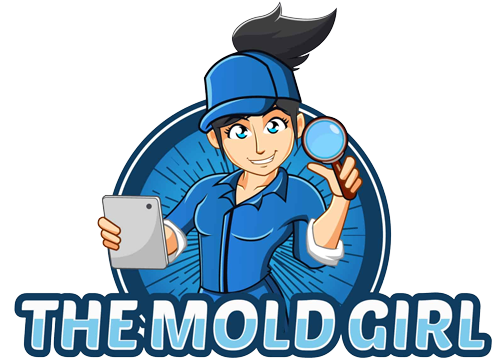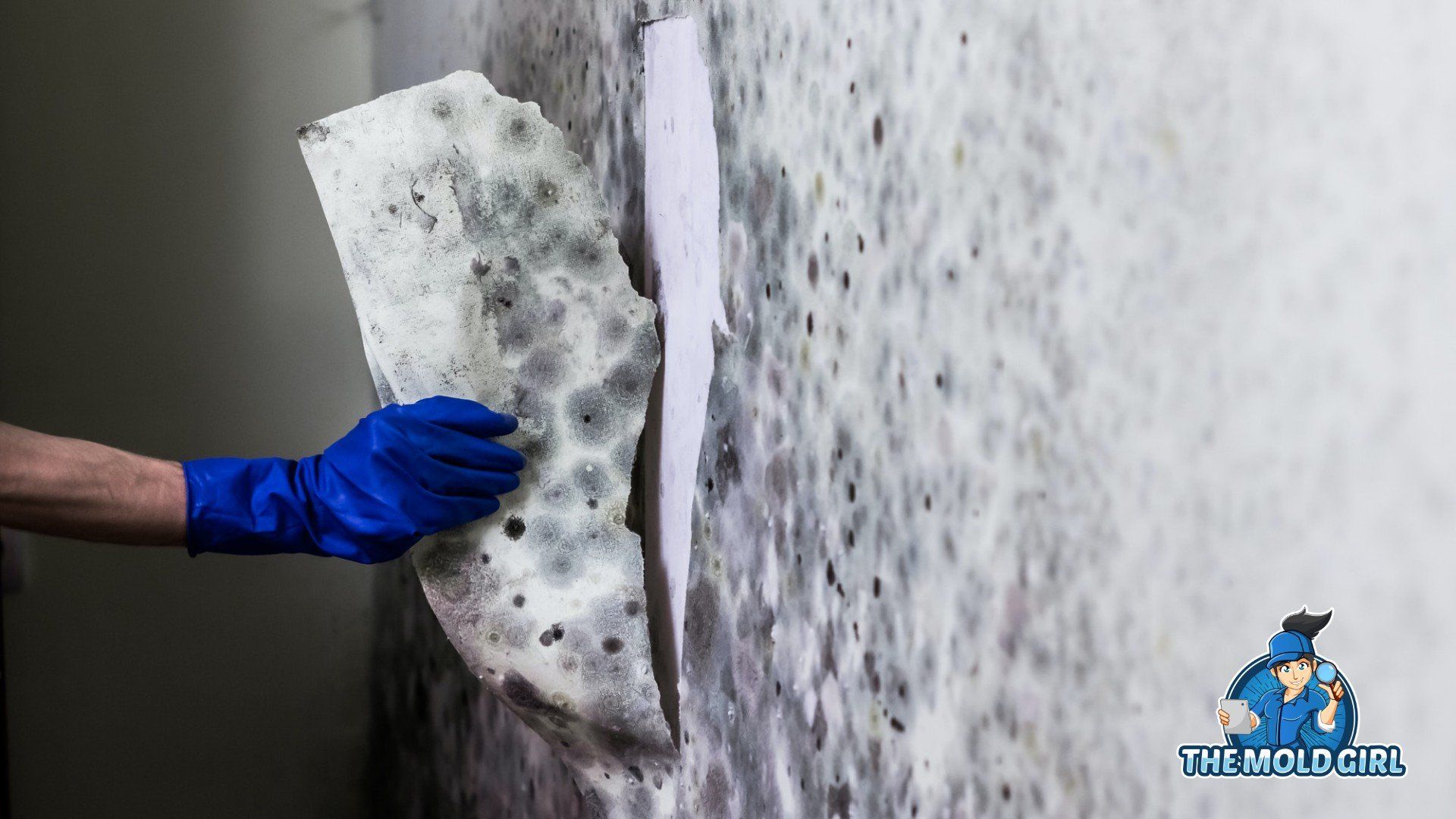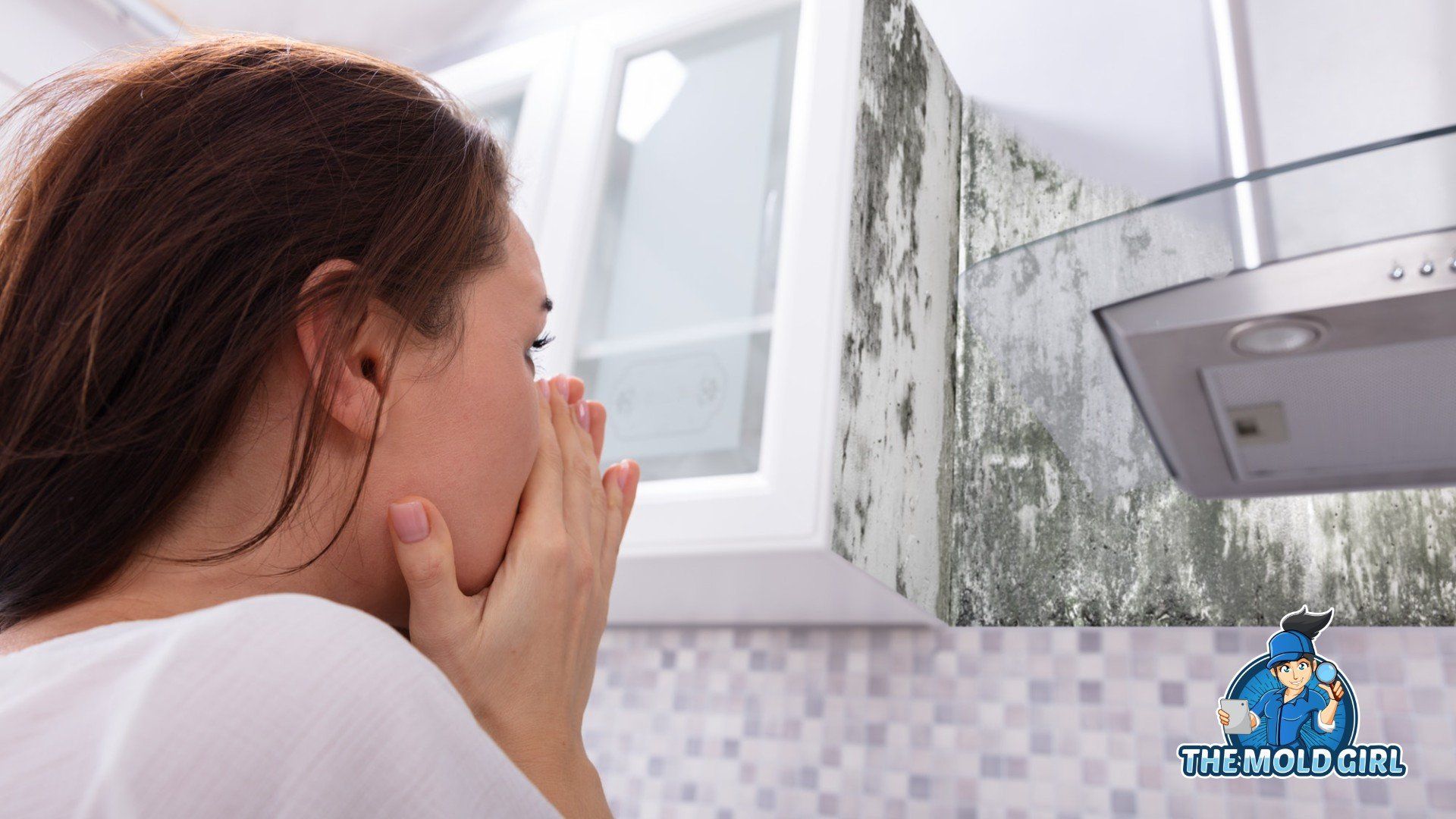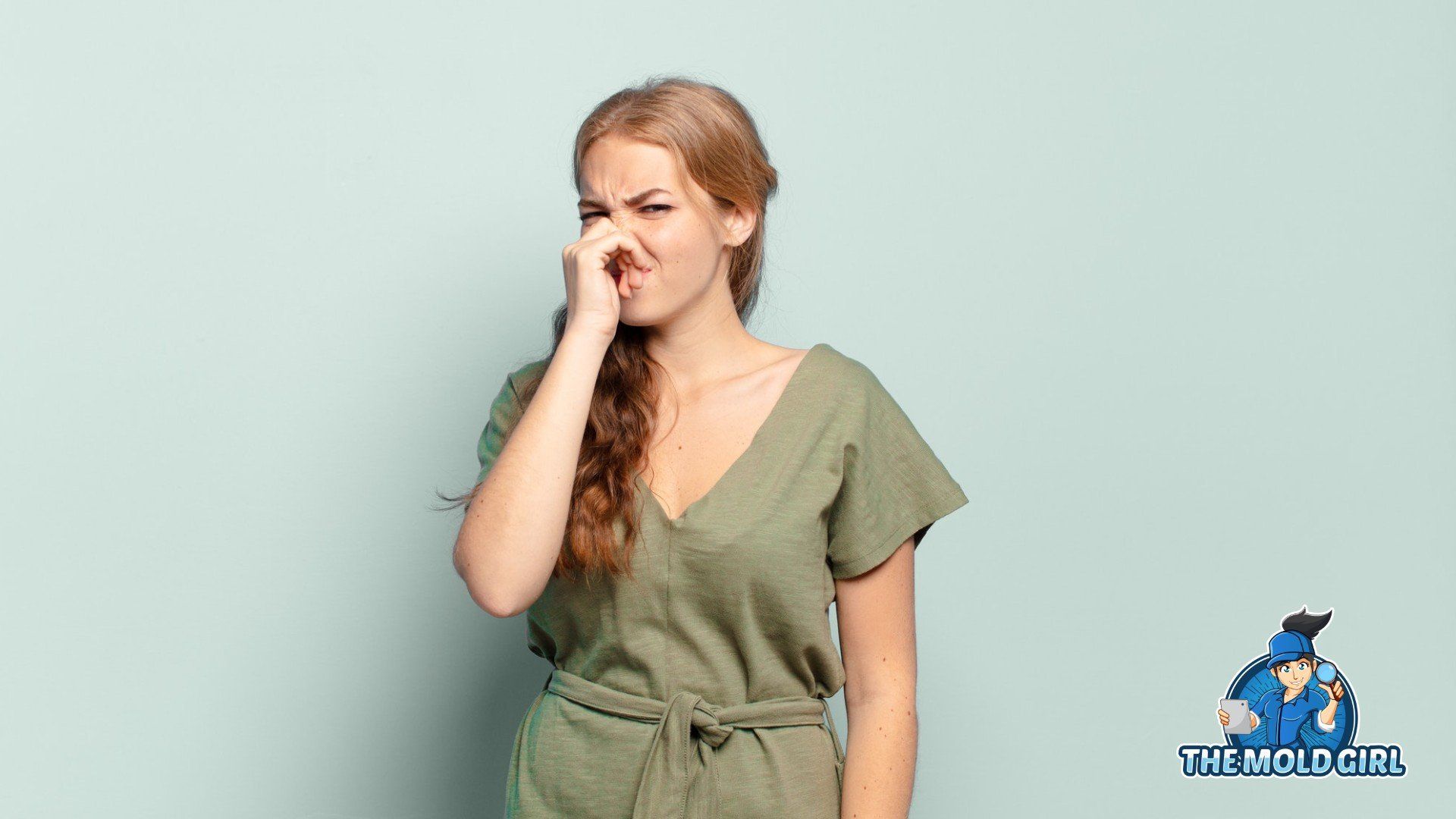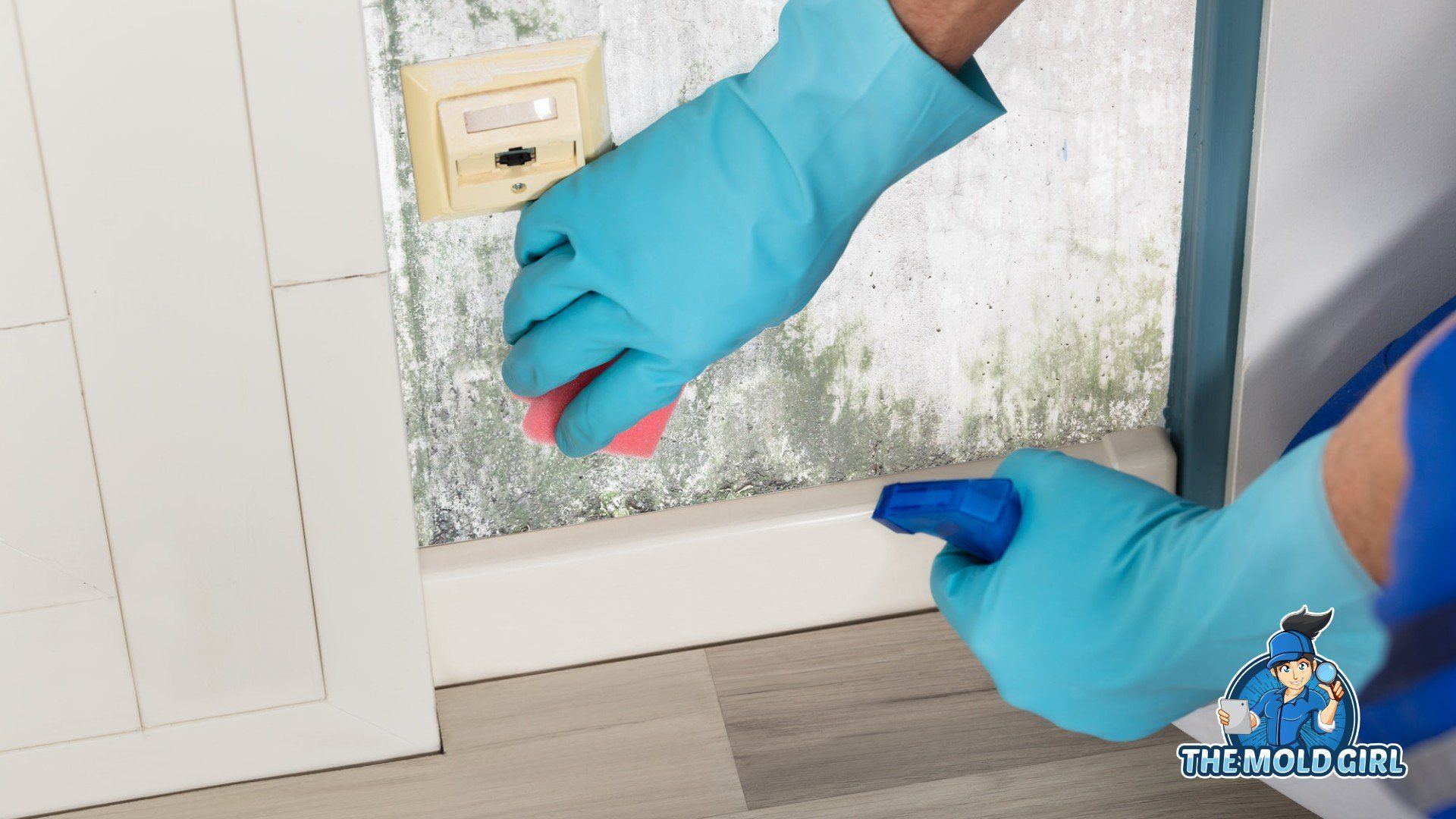Mold is everywhere. It grows on everything from walls to ceilings to floors. And mold spores float around in the air. They can cause health problems ranging from allergies to asthma to even cancer.
Mold testing is important because it helps you identify where mold is growing and how serious the problem is. In addition, it gives you peace of mind knowing that you've done everything possible to prevent further damage.
I'll go over the basics of mold testing and why finding the moisture source it's important when it comes to stopping the growth of mold.
CHARLESTON MOLD TESTING AND MOLD INSPECTION SERVICES
Mold inspection services are a must if you own or manage property in Charleston, SC. The problem is that many homeowners don't realize that mold can grow anywhere, including inside walls, floors, ceilings, and furniture. It can also be difficult to detect, especially if you don't know where to look.
To protect yourself from potential health problems, it's best to hire a professional mold inspector who knows exactly where to look for signs of mold growth. These professionals can perform a thorough inspection of your home and provide recommendations for remediation.
Inspectors typically use infrared cameras to scan surfaces for mold. They also use other methods, such as air sampling, humidity meters, and visual inspections, to determine whether mold has formed.
Before hiring a mold inspector, ask questions about their qualifications and experience. Make sure that they have the proper training and certifications to inspect for mold. Ask if they offer consultations or if they charge hourly rates. Also, ask if they have insurance coverage and if they carry liability insurance.
Ask if they offer references or testimonials.
After inspecting your home, the mold inspector will provide a report detailing any areas with visible mold. They may recommend cleaning or removing affected items, depending on the severity of the situation. In addition, they may suggest ways to prevent future mold growth.
If you suspect that mold is growing inside your home, contact a Charleston mold inspector immediately.
Why do you need Mold Testing?
Mold testing is a crucial part of mold remediation services. It helps determine whether or not mold has actually occurred in a home or business. The problem is that many homeowners and businesses aren’t aware that mold testing is necessary until after the damage has already been done.
This means that if you suspect that mold is present in your home or office, you could end up spending thousands of dollars trying to fix the problem without knowing whether or not it really exists. That’s why it’s important to perform mold testing before making any decisions regarding the issue.
How Dangerous Is Mold?
Mold is everywhere, and unfortunately, it can be very dangerous if left untreated. It can cause respiratory issues, allergies, asthma attacks, and other health problems. In fact, mold has been linked to over 200 diseases.
While mold can be found almost anywhere, it tends to grow best in warm, humid environments. That means that most homes and businesses are susceptible to mold growth. Fortunately, there are ways to detect and remove mold from your home.
First, inspect your home for signs of water damage. If you notice dampness or discoloration, it could indicate a leaky pipe or damaged roofing material. Once you've pinpointed the problem area, contact a professional who specializes in mold removal.
Next, look for areas where moisture collects. These include places like bathrooms, basements, crawl spaces, attics, and garages. If you spot these areas, consider sealing cracks and holes with caulk.
Finally, look for dark spots on walls and ceilings. These spots could be mold growing on drywall or wood framing. If you find any of these signs, contact a professional immediately.
Possible Health Effects of Mold Exposure
Mold exposure can lead to health problems ranging from respiratory issues to skin rashes. While mold exposure doesn't always pose a serious threat to human health, it's still important to inspect your home for signs of mold growth.
To determine if your home has mold, look for these telltale signs:
• Water damage
• Odors
• Black spots on walls
• Stains on carpeting
• Swimming pool water
• Wet areas under furniture
• Piles of dirt
• Cracks in drywall
• Dark stains on ceilings
• Sooty marks on windows
• Yellowed paint
• Peeling wallpaper
• Blistered paint
• Discolored wood
• Faded wall paper
• Stained floorboards
• Musty odors
• Vents that aren't working properly
• Smells coming from electrical outlets
People at Greatest Risk for Health Effects from Mold
Mold is everywhere, and it's easy to overlook the fact that it could pose health risks to humans. The Centers for Disease Control and Prevention (CDC) estimates that approximately 15% of Americans suffer from mold allergies. However, according to the CDC, many people who are exposed to mold develop symptoms ranging from mild to severe.
Although mold exposure can lead to respiratory problems, skin rashes, and other health issues, the most common problem associated with mold is allergic reactions. People who are sensitive to mold tend to experience sneezing, coughing, wheezing, watery eyes, and headaches after being exposed to it.
In addition to the risk of developing health problems, mold can damage property. It can grow inside walls, ceilings, and floors, and if left untreated, it can spread through air ducts and pipes. When mold grows in places where it shouldn't, it can cause serious damage to furniture, carpeting, and other items.
To prevent mold growth, homeowners should regularly inspect their homes for signs of moisture. They should also clean up spills immediately, remove wet clothing and towels from the floor, and turn off faucets and showers while cleaning.
If you suspect that your home has mold, contact a professional mold inspector. These experts can test your home for mold and provide recommendations for remediation.
Moisture Analysis
Mold growth is a common problem in homes and businesses. It can occur anywhere where moisture collects, including bathrooms, basements, kitchens, crawl spaces, attics, garages, and other areas. The mold spores that grow in these places can spread through the air and into the home, causing health problems for both humans and pets.
To prevent mold from growing, it's important to inspect your property regularly for signs of water damage. Once you notice any leaks, cracks, or holes in your walls or floors, it's time to contact a professional.
Professional mold inspection services can test your property for mold and provide recommendations for remediation. These professionals will look for signs of water damage, leaky pipes, and other potential causes of mold growth.
They'll then perform a visual inspection of your property to determine if there's any visible mold growth. If there is, they'll collect samples for further analysis.
After collecting samples, they'll send them off to a lab for testing. Depending on the type of mold found, they may recommend different methods of removal. Some molds can be removed easily with minimal effort, while others require specialized equipment and expertise.
Inspectors will also advise you on how to prevent future mold growth. For example, they may suggest sealing small cracks and gaps in your home.
Once you've taken care of the issues that caused the mold growth, you can rest easy knowing that your home is safe again.
Poor Ventilation Leads To Mold Problems
Mold is a common problem in homes and businesses. It can grow anywhere where moisture is present, including bathrooms, basements, kitchens, crawl spaces, attics, and garages. The most common places for mold growth are in poorly ventilated areas, such as windowsills, walls, ceilings, and floors.
There are many ways to prevent mold from growing in these areas. First, make sure that your home has proper ventilation. Make sure that vents are open and that air circulates freely through the house. Second, clean regularly. Vacuum frequently and dust thoroughly. Third, seal cracks and holes in the foundation. Fourth, install dehumidifiers if necessary. Finally, keep humidity levels low.
Inspecting for mold is easy. Simply look for signs of discoloration, dampness, or other indications of mold growth. Once you notice mold, contact a professional immediately.
Mold Testing
Mold testing is a method of identifying mold growth within a home or business. It's used to determine if there is a problem with moisture levels or humidity and to see if there is elevated mold spores in the air. The test involves taking samples from various areas of the property and then sending them off to a lab for analysis.
There are many different types of mold tests available. Some are quick and easy to perform while others require more complex equipment. For example, a visual inspection is a basic test that can be done with just a flashlight and a pair of gloves. However, it doesn't provide much detail about the type of mold spore or spores present.
On the other hand, a thermal imaging camera can detect hidden moisture and pinpoint exactly where it is located. These cameras are typically used in conjunction with a moisture meter to measure the amount of water vapor in the air.
Regardless of the type of test performed, it's important to understand the difference between mold and mildew. Mildew is actually a fungus that grows on damp surfaces, whereas mold is a fungus that grows on organic material. Both can cause health problems, but mold tends to grow faster and spread more easily.
It's important to remember that mold does not necessarily indicate a serious health issue. In fact, most cases of mold are harmless. However, if you notice any symptoms, it's best to contact a professional immediately.
Mold Inspection
Mold inspections are used to determine if there is mold growth in a home or business. Mold inspections are typically done after water damage has occurred, building materials show mold growth, or the property owner noticed a musty odor, and they should be performed either by a professional mold inspector.
While mold inspections can be helpful in determining whether or not there is mold growth in your home, they aren't always able to detect every type of mold. For example, black mold inspections can miss small amounts of white mold growth. In addition, mold inspections can miss areas where mold growth is growing, such as behind drywall or under carpeting.
In contrast, mold tests are specifically designed to detect all types of mold growth. These tests can be conducted by professionals or by homeowners themselves. Homeowners can perform mold tests by swabbing surfaces suspected of having mold growth and then sending samples off to a lab for analysis. Professional inspectors can conduct mold tests by taking air samples and swabbing surfaces suspected to have mold growth.
Both methods are effective ways to test for mold growth, but each method has its own advantages and disadvantages. Homeowners can easily perform mold tests themselves, but they must be careful not to contaminate the area being inspected. Professional inspectors can provide more accurate results, but they require specialized equipment and training.
Homeowners who suspect that their homes have mold growth can contact a professional inspector to perform a mold inspection. Professionals can inspect any area of a home suspected of having mold growth, including basements, crawl spaces, attics, and bathrooms. Professionals can also perform mold tests on these areas.
Surface Testing
Professional mold inspectors typically perform two types of tests: surface sampling and air sampling. Surface sampling involves collecting surface samples from surfaces that appear to be contaminated. Air sampling involves collecting samples from the air inside a room or building. Both methods provide valuable data that helps determine the extent of the problem and provides recommendations for remediation.
Surface sampling is usually performed with swabs or sponges. Professional mold inspectors use these items to collect samples from specific locations within a space. They then send the samples off to labs for analysis.
Air sampling is generally done with a device called a pump sampler. These devices work by sucking air into a chamber and filtering out particles. Once the sample has been collected, it's sent to a lab for analysis.
Both methods are effective at detecting mold contamination, but each has its advantages and disadvantages. While surface sampling is more convenient, it only reveals information about the surface of a particular location. Air sampling, on the other hand, provides a complete picture of the entire environment.
The choice between surface and air sampling depends on the type of mold you're trying to detect. Some molds are easier to spot on surfaces than others, while some are easier to spot in the air.
Air Quality Testing
There are several ways to test for mold growth in your home. The most common method involves taking air quality samples from various locations. These tests can determine whether mold is present and where it might be growing.
To perform air quality testing, you'll need to collect a sample of the air in each room. For example, you could place a small fan near the ceiling and another near the floor. Then, you'd turn both fans on and wait until the air has circulated through the entire house. Once you've collected enough samples, you can send them off to a lab for analysis.
It's important to remember that mold doesn't always indicate a serious health issue. However, if you notice signs of mold growth in your home, it's best to contact a professional immediately. In addition to cleaning up the area, they can provide guidance on how to prevent future issues.
Mold Protocol Development
In addition to providing a written mold protocol development, a mold inspector will perform a visual assessment of the area where mold is present. He or she will then collect samples from the affected areas and send them off to a lab for analysis. Once the lab completes its tests, the mold inspector will return to the property to discuss the findings and recommend a course of action.
It's important to remember that mold is a serious health hazard. It can cause respiratory problems, allergies, and other symptoms. When mold is found in a home, it's imperative that it be removed immediately. Otherwise, it could lead to structural damage and costly repairs.
Mold Remediation in Charleston
Mold remediation is a necessary part of maintaining a healthy home environment. It's important to understand the signs of mold growth and how to properly clean it up. In addition to cleaning up mold yourself, you may also consider hiring a professional to inspect your property for mold.
There are many different types of molds, and each type has its own unique characteristics. The most common types of mold include black mold, white mold, and gray mold. Black mold tends to grow faster and spread easily. White mold grows slower and spreads less easily. Gray mold grows slowly and doesn't spread very far.
To determine if you have mold, look for these signs:
• Smell - Mold spores can enter through cracks in walls or ceilings and then germinate into the visible mold. Mold smells musty or earthy, and it may smell stronger indoors than outdoors.
• Color - Mold stains surface a dark color, usually brownish or greenish.
• Growth - Mold grows best in warm, humid conditions. When mold starts growing, it produces tiny spores that float in the air. These spores are invisible to the naked eye, but they can travel long distances. Once inhaled, they can settle in the lungs and cause respiratory problems.
Once you notice the presence of mold, it's important to remove it immediately. There are several ways to clean up indoor mold, including:
• Cleaning - Remove any items that could harbor mold from the area where mold was found. Then, thoroughly wash everything with soap and water. Be careful not to scrub too hard, as this can damage the surface.
• Drying - After washing, let the area dry completely. Don't put anything directly over the spot until it dries.• Disinfection - Before putting anything back in the area, disinfect it with bleach solution. Follow the instructions on the label.
Although mold removal is fairly straightforward, it's still important to hire a professional to inspect your home for mold. Professionals can detect mold more accurately than homeowners, and they can provide tips on preventing future mold outbreaks. They can usually point you in the direction of a good mold removal company that can help you restore the levels of mold to normal.
Your Charleston Mold Inspector
Mold inspection and finding the sources of moisture is a crucial part of mold removal. It's important to hire someone who knows what they're doing and has experience dealing with mold and excessive moisture problems in residential homes and commercial buildings.
The Mold Girl offers mold inspections and mold remediation services in Charleston SC to Residential property owners and commercial clients. She provides mold testing and mold removal services, including mold cleanup, mold damage repair, and mold restoration.
The Mold Girl specializes in solving mold issues and other types of indoor air quality issues in Charleston, SC. Her goal is to provide her mold remediation companies, business owners and homeowners with the most thorough and effective mold inspection and mold testing services possible.
CONTACT THE MOLD GIRL TODAY!
The Mold Girl will do everything we can to ensure your experience with us is excellent.
REQUEST A FREE ESTIMATE
CHECKOUT RECENT POST
